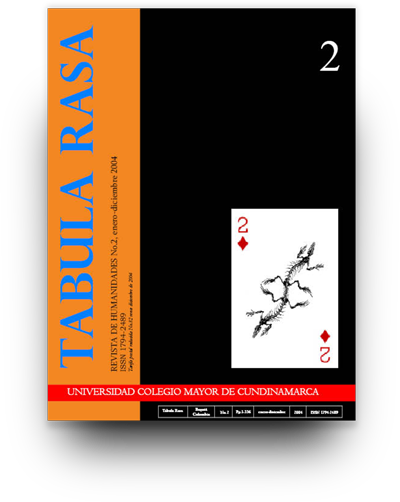Evil, Freedom, and Progress in G. W. Leibniz’ Theory of Damnation
Mal, libertad y progreso en la teoría de la condenación de G.W. Leibniz
Show authors biography
This article seeks to explain that the condemned are not doomed, that they are always subjectto be doomed, but that they can always be liberated, too. Reference will be made to the Evil,the creation of which God has been accused of. The theory of condemnation will be presented,as related to human freedom, in order to specify the motives of the condemned to becomedoomed. Judas’ guilt was not precipitated by an event in the past, but requires the realizationof the act in the present. It is argued in this way that the condemned, on their death, leavebehind a large amount of progress in the world, which will be used in compensation for thegood of others.
Article visits 110 | PDF visits 45
Downloads
Deleuze, Guilles. 1989. El pliegue. Leibniz o el barroco. Paidós, Buenos Aires.
—————————. 1987. Cours Vincennes: la taberna. www.webdeleuze.com.
Estrada, Juan. 1997. La Imposible Teodicea. Trotta, Madrid.
Geshe, Adolphe. 1995. Dios para pensar el mal. El hombre verdad e imagen. Sígueme, Salamanca.
Kant, Emmanuel. 1991. La religión dentro de los límites de la mera razón. Alianza Editorial, Madrid.
Leibniz,Gottfried Wilhelm. 1983. Profesión de fe del filósofo. Orbis, Barcelona
______________1983. Discurso de Metafísica. Orbis. Barcelona
______________1982. Nuevos ensayos sobre el entendimiento humano. Nacional, Madrid.
_____________ 1954. La teodicea. O tratado sobre la libertad del hombre y el origen del mal.
Aguilar, Madrid.
Marcuse, Herbert. 1976. Razón y Revolución. Alianza editorial, Madrid.
Ortega y Gasset. José. 1979 La idea de principio en Leibniz. Alianza Editorial. Madrid.
Ortiz, José María. 1988. El origen radical de las cosas. Eunsa. España
Panadero Concha, Roldán. 1990. «La salida leibniziana del laberinto de la libertad». En
Escritos en torno a la libertad el azar y el destino de Leibniz. Tecnos, Madrid.
Russell, Bertrand. 1977. Exposición crítica de la filosofía de Leibniz. Siglo XX. Buenos Aires.
Saame, Otto. 1987. El principio de razón en Leibniz. Laia, Barcelona.
Samaranch, Francisco. 1983. Prólogo Profesión de fe del filósofo. Orbis. Barcelona




